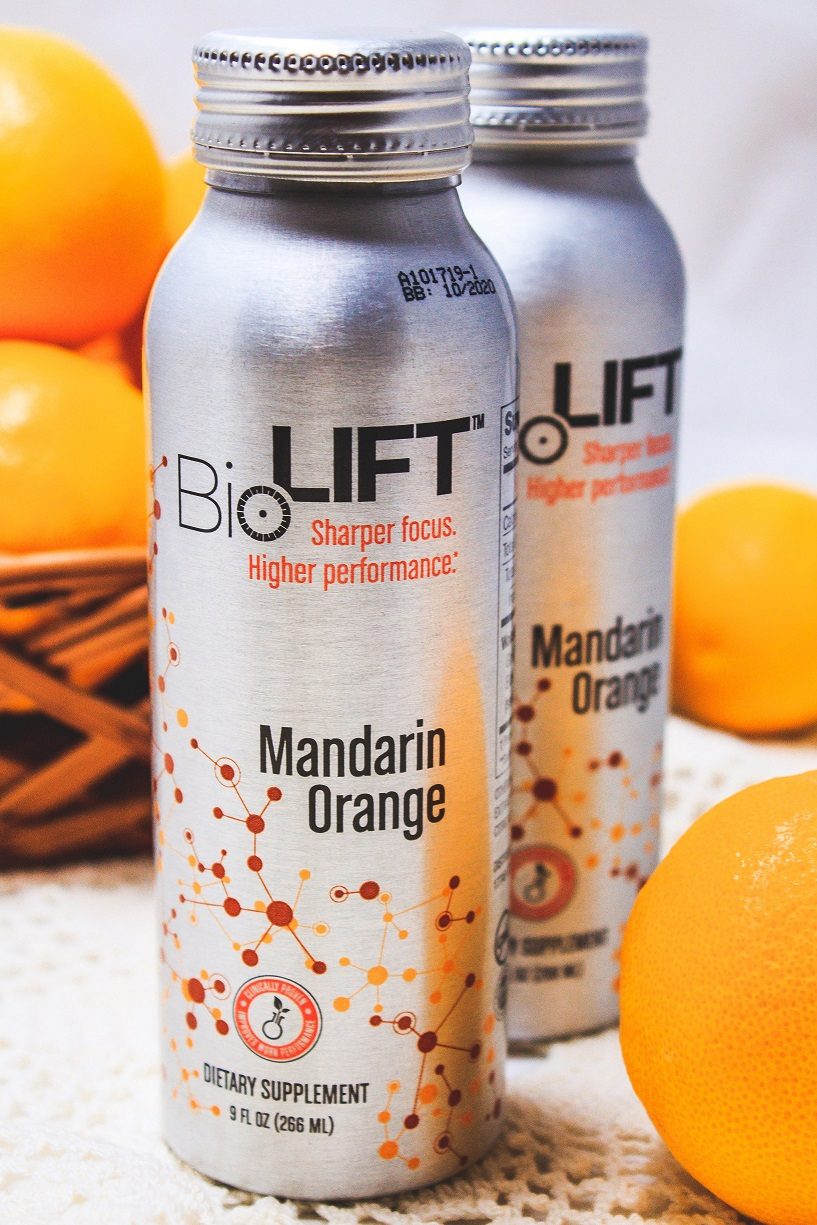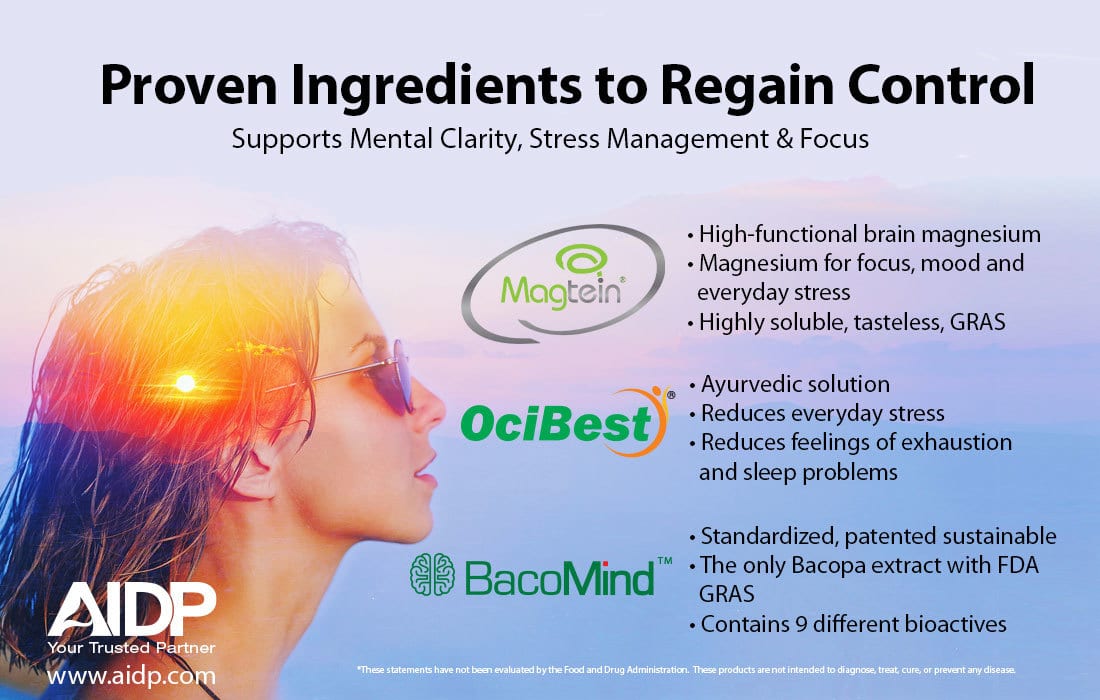Young
BRAINS
Keeping
BETTER FOR
you
Part 2: In the quest to sharpen the mind and retain cognitive health through the lifespan, old favorite and upcoming nutrition ingredients are making headlines.
By KERRY HUGHES, MS, Contributing Editor
Photo courtesy of: GettyImages / Jasper Chamber
The activities of adaptogens—botanical ingredients believed to help the body and mind adapt to stress over time—might be related to a healthy microbiome and thus healthier brain and cognitive function. For example, American ginseng has long been associated with benefits to mental and physical health, and studies have confirmed some of these claims. But a new study revealed that improvements in the microbiome are a possible mechanism for those activities of American ginseng. The ginger relative was found to produce better working memory and attention in the short-term, and longer-term improvements in cognition on an acetylcholine-sensitive task. Reduced mental fatigue, greater self-assurance aspects of mood, and consistent microbiome changes were also revealed. Significant increases in levels of short-chain fatty acids and A. muciniphila were observed over the three weeks of American ginseng supplementation. There also was a clear upward trend in Lactobacillus levels, another well-researched beneficial gut microorganism.
Vitamins for thought
Vitamins and nutrients that are traditional aids in the quest for supporting optimal wellness. They also are gaining recognition for having important roles in cognitive health. In a recent randomized controlled clinical trial, researchers found that supplementation with the omega-3 fatty acid eicosapentaenoic acid (EPA) in young adults produced significant cognitive improvements in global accuracy and memory scores. Moreover—and surprisingly—it also produced improvements in these higher-order cognitive functions while docosahexaenoic acid (DHA) did not.
DHA did produce cognitive improvements in this study, but these were limited to during the learning phase of overnight memory consolidation tasks. This was interpreted as a possible indication that EPA could be more beneficial for healthy young adults in terms of cognitive outcomes.
Omega-3s continue to be in the spotlight for cognition well into older age, as a new study found that daily supplementation over a period of six months with 2.3g of polyunsaturated fatty acids (PUFAs) (1.7g DHA and 0.6g EPA) in Alzheimer’s patients and subjects with Alzheimer’s related biomarkers correlated to better memory test scores. In this study, those who took the omega-3 supplementation had stable scores, whereas the scores of the patients in the control group deteriorated.

Consumers are showing high interest in botanicals that contain neuroprotective compounds or phytochemicals known to aid focus. Photo courtesy of: Applied Food Sciences, Inc.
In recent years, vitamin D's importance has been revealed regarding multiple areas of health maintenance, including the area of cognition. Several studies have shown a relationship between vitamin D and cognitive performance as evidenced via cell differentiation, neurogenesis, and neurotransmitter synthesis. A recent study added to this understanding by showing a correlation between higher serum levels of the 25-hydroxycholecalciferol form of D and a protective effect on cognitive performance.
Although most people think of Vitamin K2 in terms of its benefits to metabolic or cardiovascular health, cognition could soon be added to the list of its recognized benefits. Vitamin K2 also seems to provide a protective benefit against the effects of Alzheimer’s disease. Among its activities that lead to this suggestion are its antiapoptotic (anti-cell death) and antioxidant effects and its positive effects in mitigating decline in mitochondrial function, cognition, CVD, and other comorbidities in Alzheimer’s disease. It also is known to help decrease neuroinflammation.
Evidence has long established the link between the B vitamin folate and neural and cognitive development in the fetal brain. But recent research is showing that the development of the fetal brain in later pregnancy is sensitive to folate concentrations as well. In a follow-up study of 11-year-old children whose mothers were part of the study on folic acid supplementation in the second and third trimester, those whose mothers took folic acid scored significantly higher in two processing speed tests and in verbal comprehension in girls compared to placebo.

Natural, non-caffeinated options for beating the midday slump and staying sharp and focused are trending strongly among young adults. Photo courtesy of: InnoBev, Ltd.
This research was a follow-up to a previous study in which the findings revealed significant cognitive benefits from maternal folate intake during pregnancy on children at 3 years and 7 years old. It also is believed to have a beneficial effect on the semantic processing of language.
Nutrition and individual nutraceutical ingredients continue to show beneficial effects not only on physical wellness, but on cognition and mental well-being from in utero brain development and throughout the lifespan. In the quest to look and feel young, as well as to perform at peak mental ability, cognition is an area of health that will be increasingly relevant for consumers of all generations. PF

Of the lipids compounds critical for the health of brain and mood, phosphatidyl serine and phosphatidic acid are among the most crucial. Photo courtesy of: Lipogen US, Inc.
Kerry Hughes, MS, principal for EthnoPharm, is an ethnobotanist, herbalist, and author with a 20-year record of success in natural product development. EthnoPharm specializes in global natural product development and education, innovative product formulation, and nexus-of-market opportunity identification. With a focus on ethnobotanical discovery and strategic innovation, Hughes and EthnoPharm continue to expand the boundaries of new natural product development, catalyze applied phyto-product breakthroughs, and bring to market new, efficacious, and profitable products that not only heal people but help protect the threatened global biodiversity. She can be reached at kerry@ethnopharm.com.
November 2021

